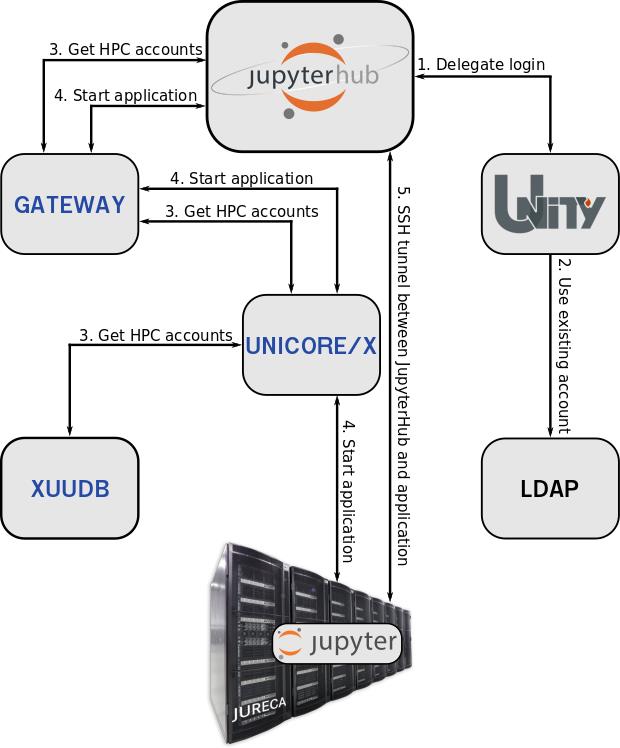Web-access to HPC for Rhinodiagnost
Easy access and integration of external users and workflow managers to the HPC resources is crucial for the Rhinodiagnostic project. Therefore, the Jülich Supercomputing Centre (JSC) as part of the Forschungszentrum Jülich added a web access based on Jupyter/JupyterHub to the usual access via SSH.
Jupyter (https://jupyter.org) is an open source web application and offers (in combination with JupyterHub) an interactive web-based multi-user working environment for creating reproducible computer-aided narratives. It combines live code execution, rich text, math, plots and visualization.
The integration of Jupyter creates a multi-functional interface to the HPC resources that meets the needs of both HPC experts and pure users without HPC knowledge. Furthermore, it allows Rhinodiagnost to design the web access project-specifically and to hide the complexity of HPC behind a user-friendly interface.
However, some challenges had to be faced. First and foremost, a secure authentication and authorization of users had to be implemented. This is extremely important for medical applications and data and has hence been given high priority right from the start of the project.
Authentication checks the person’s or computer’s identity. Special permissions are then granted for the subsequent authorization, whereby the services provided (e.g. Jupyter on the HPC resources) can be used. For authentication, JSC coupled the identity management system Unity-IdM (http://www.unity-idm.eu) with JupyterHub last year. Authorization is provided by the UNICORE software (https://www.unicore.eu) developed at JSC, which also takes over starting and administration of the Jupyter software on the HPC resources.
Based on this new service called Jupyter4JSC (https://jupyter-jsc.fz-juelich.de) it is now possible to develop user-friendly web-applications with access to the vast compute resources of HPC required to meet the aims of Rhinodiagnost.

